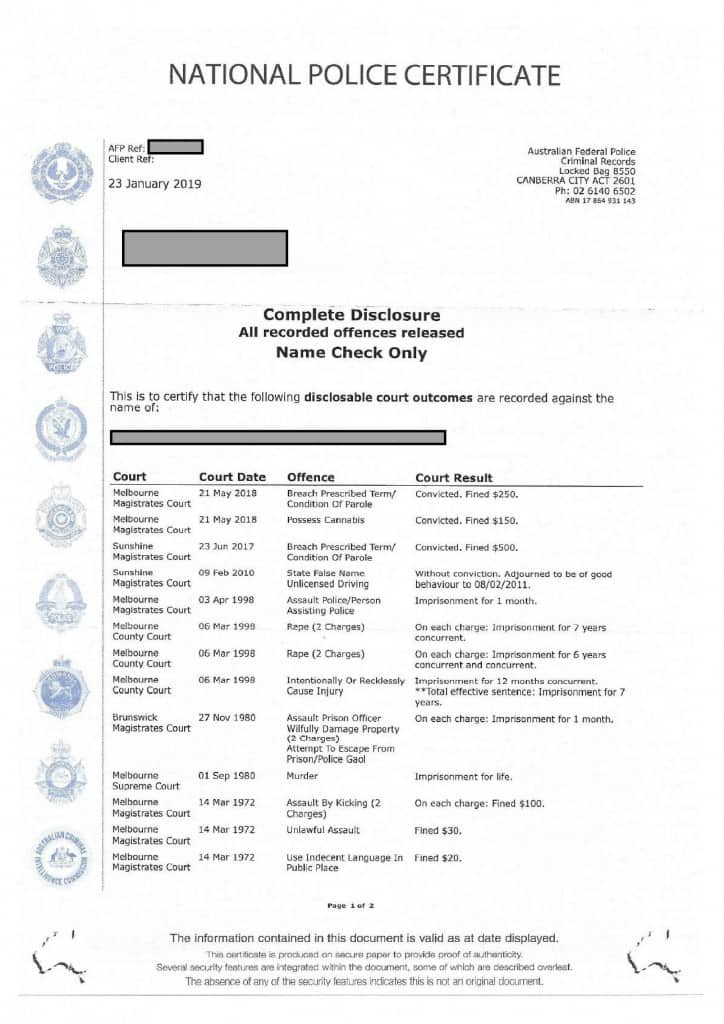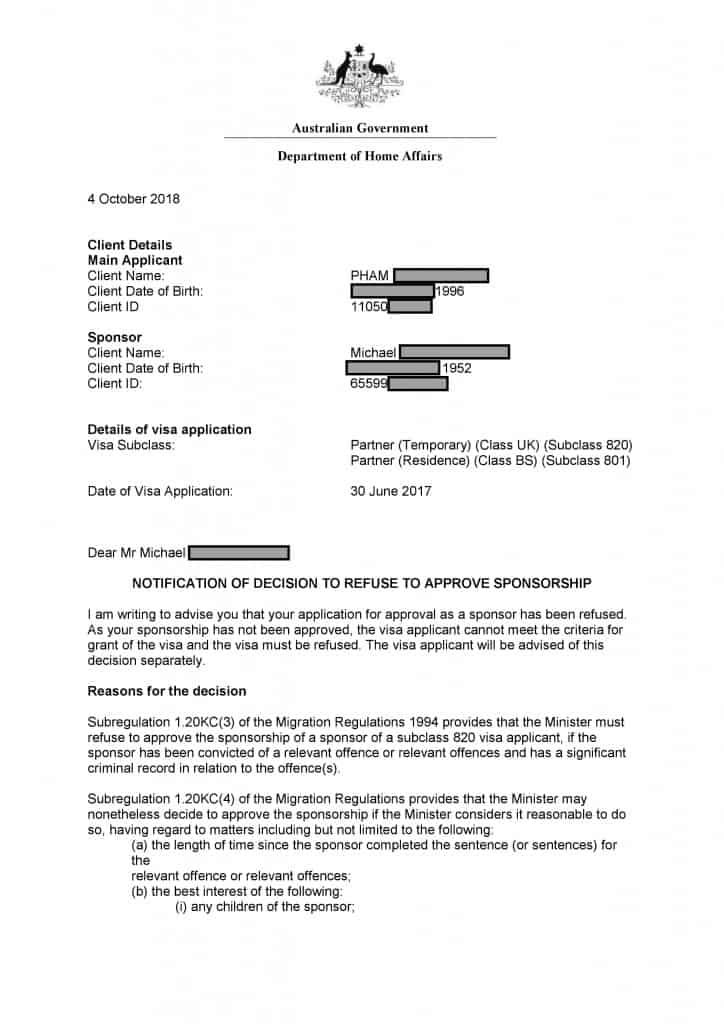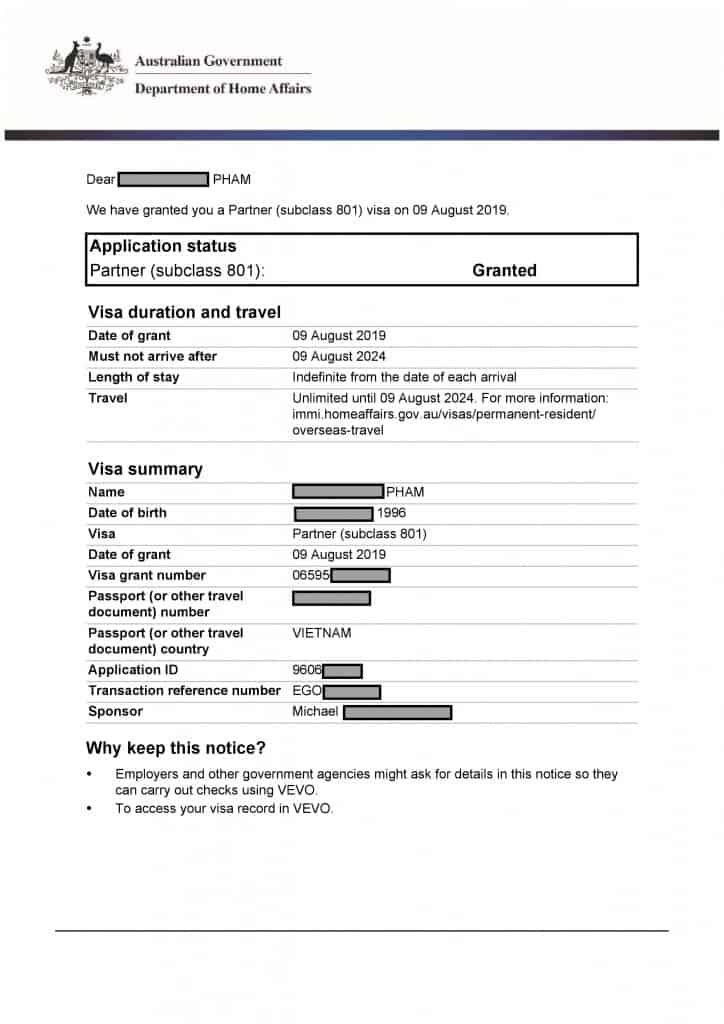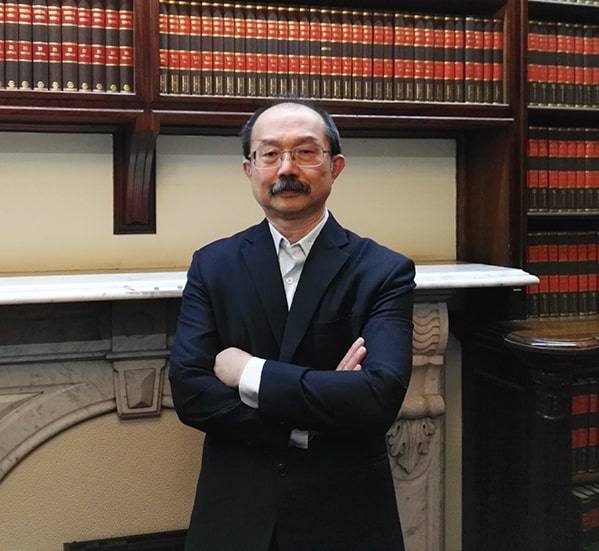
You may not be able to sponsor your partner if you have a significant criminal record as you will be affected by Regulation 1.20KC Sponsorship Limitation. Your Partner Sponsorship may be refused unless Regulation 1.20KC is waived.
Regulation 1.20KC Sponsorship Limitation may prevent a sponsor with a significant criminal record from sponsoring his or her partner for a partner visa even if the parties are married and have a child together. The Department of Immigration (Department of Home Affairs) may refuse to allow an Australian citizen or permanent resident or an eligible NZ citizen from sponsoring their partner (spouse or de facto partner) for a Partner visa (click here to learn about Subclass 300 or Subclass 309 or Subclass 820) if their sponsor has a significant criminal record or history of criminal offending.
The Department of Immigration can refuse a sponsorship application if the sponsor has committed criminal offences years ago (Regulation 1.20KC Sponsorship Limitation).
Under 18 applicants
If you are sponsoring an applicant (either the primary or secondary applicant) who is under 18 at the time of application (and decision), the sponsor is also subject to reg. 1.20KB.
Reg. 1.20KB(2) prevents a sponsor who has been charged with a registrable offence (defined in reg. 1.20KB(13)), unless applicant is over 18 at the time of decision or the charge has been withdrawn, dismissed or disposed of without the recording of a conviction, from being a sponsor.
Similarly, if you have been convicted of a registrable offence, unless applicant is over 18 at the time of decision or the conviction has been quashed or set aside (reg. 1.20KB(3)). If you are prevented, you may request for reg. 1.20KB(3) to be waived under reg. 1.20KB(4) if you have completed the sentence more than 5 years before your sponsorship application; and you have not been charged with a registrable offence since completing that sentence; and there are compelling circumstances affecting you or the applicant. Even after you have completed your sentence and have been charged with a registrable offence since completing that sentence but the last charge has been withdrawn, dismissed or disposed of without recording of a conviction if there are compelling circumstances affecting you or the applicant (reg. 1.20KB(5).
Sponsor’s spouse or de facto partner
You should note that reg. 1.20KB does not apply to your spouse or de facto partner if the applicant(s) is applying for a Partner Class UK Subclass 820 or Prospective Marriage Class TO Subclass 300 or Partner Class UF Subclass 309 visa. However, reg. 1.20KB applies to your spouse or de facto partner if the applicant(s) is applying for a Child Class AH Subclass 101 or Child Class BT Subclass 802 or Dependent Child (an Extended Eligibility) Class TK Subclass 445 visa.
You may be prevented by reg. 1.20KB(7), if your spouse or de facto partner has been charged with a registrable offence, unless applicant is over 18 at the time of decision or the charge has been withdrawn, dismissed or disposed of without the recording of a conviction, from being a sponsor.
Similarly, if your spouse or de facto partner have been convicted of a registrable offence, unless applicant is over 18 at the time of decision or the conviction has been quashed or set aside (reg. 1.20KB(8)). If you are prevented because of your spouse or de facto been charged or convicted of a registrable offence, you may request for reg. 1.20KB(8) to be waived under reg. 1.20KB(9) if your spouse or de facto partner has completed the sentence more than 5 years before your sponsorship application; and your spouse or de facto partner has not been charged with a registrable offence since completing that sentence; and there are compelling circumstances affecting you or the applicant. Even after your spouse or de facto partner has completed their sentence and have been charged with a registrable offence since completing that sentence but the last charge has been withdrawn, dismissed or disposed of without recording of a conviction if there are compelling circumstances affecting you or the applicant (reg. 1.20KB(10).
If your spouse or de facto partner is affected by reg. 1.20KB(7) and/or reg. 1.20KB (8) you and/or your spouse or de facto partner must provide a police check within a reasonable time if requested by the Department (reg. 1.20KB(12)). If you and/or your spouse or de facto partner do not comply, the Department may refuse your sponsorship application.
If your spouse or de facto partner is affected by reg. 1.20KB(7) and/or reg. 1.20KB(8), the Department (or AAT) must determine and not speculate (Makhmidkhodjaeva v Minister for Immigration, Citizenship, Migrant Services and Multicultural Affairs [2020] FCAFC 88 at [21]) at the time of decision whether you and your spouse or de facto partner have a mutual commitment to a shared life to the exclusion of all others, the relationship is genuine and continuing, and you did not live separately and apart on a permanent basis (s 5F(2) for spouse; s 5CB(2) for de facto). In applying reg. 1.20KB(7) or reg. 1.20KB(8) or to consider the waiver provision in reg. 1.20KB(9) or reg. 1.20KB(10), the decision-maker must consider whether there is in existence a spouse or de facto relationship. Similarly, if your spouse or de facto partner did not provide a police check requested by the Department (reg. 1.20KB(12)), your sponsorship application cannot be refused unless you are in a spouse or de facto relationship at the time of decision as you may not have an obligation to provide a police check of an ex spouse or de facto partner (Makhmidkhodjaeva v Minister for Immigration, Citizenship, Migrant Services and Multicultural Affairs [2020] FCAFC 88 at [22]).

How do I know if my partner has criminal record?
Sponsors are required to provide an AFP (Australia Federal Police) National Police Certificate or NPC (click here to learn how to apply for a NPC).

Sponsorship application refused for criminal history
Regulation 1.20KC Sponsorship Limitation can be waived even having a significant criminal record
The Minister has a discretion to waive reg. 1.20KC Sponsorship Limitation (click here to learn more) if he considers it is reasonable to do so.
What is reasonable depends on:
- the length of time since the sponsor has completed the sentence(s);
- if there is a child to the relationship, the best interests of the child;
- if there is a child from a previous relationship, the best interests of that child;
- whether the relationship is a long-term 1;
- any other matters.
How to request for a Regulation 1.20KC Sponsorship Limitation waiver if there is a child
With regard to the best interests of a child, Australia is a signatory to the Convention on the Rights of the Child or CROC.
CROC Article 3 provides that the best interests of the child shall be a primary consideration in any administrative decision making. Essentially, Australia must make sure that the child is provided with protection and care to ensure his or her well-being by considering the rights and duties of his or her parents.
CROC Article 9 also provides that a child shall not be separated from his or her parents against their will.

Reg. 1.20KC Sponsorship limitation successfully waived
Once the Department of Immigration becomes aware that the sponsor has a significant criminal record, the sponsor will be asked to comment on his or her criminal record & partner sponsorship eligibility, that is, Regulation 1.20KC Sponsorship Limitation is engaged.
If the Department of Immigration refused to approve the sponsorship, the visa applicant will be informed that the Partner visa application will be refused. Generally, there is no AAT review rights for the sponsor. Although the visa applicant may apply to AAT to review the visa application refusal but is unlikely to succeed as the sponsor is not approved to sponsor the visa applicant, that is, affected by Regulation 1.20KC Sponsorship Limitation.
You should note that under Policy, the Department is not required to provide reasons for refusing a sponsorship at the time of the sponsorship refusal. If the visa application is refused on the basis of a lack of a valid sponsorship, then the reasons why the sponsorship refusal will be provided in full in visa application refusal. The decision to refuse a visa on the basis of a lack of valid sponsorship is AAT reviewable.
In addition, once the sponsorship application is refused, the visa applicant will be invited to comment on the fact that, following the sponsorship refusal, the visa applicant now lacks a valid sponsor. If the visa application is ultimately refused and you disagree with the decision to refuse the sponsorship, you may seek a merits review with AAT.
What can you do if your partner has criminal record?
Before you apply for a Partner or Marriage visa, such as Prospective Marriage visa (click here to learn more about Subclass 300) or an offshore Partner visa (click here to learn more about Subclass 309) or an onshore Partner visa (click here to learn more about Subclass 820), you should consult an immigration lawyer or registered migration agent (click here to learn more) to establish whether your sponsor is affected by sponsorship limitations.
You should consider engaging the services of an immigration lawyer to help you request for a Regulation 1.20KC Sponsorship Limitation waiver.
Australian migration law is complex and difficult to understand, contact our immigration lawyer for a consultation (fee applies) regarding significant criminal record & partner sponsorship. You may also refer to our FAQs for answers regarding visa application or visa cancellation by clicking here.

 041 222 4020 or WeChat: AUDvisa
041 222 4020 or WeChat: AUDvisa
This article is not intended to be or taken as migration legal advice. The author of this article disclaims any liability for any action or omission on the information provided or not provided in this article. You should always consult an immigration lawyer or a registered migration agent to form an informed opinion on your immigration matter.



